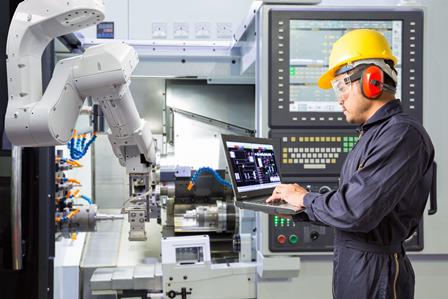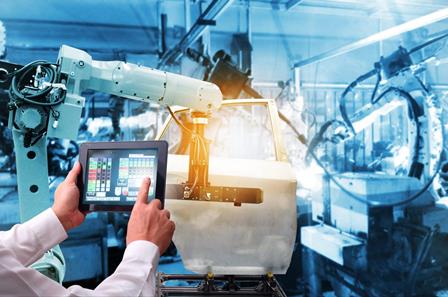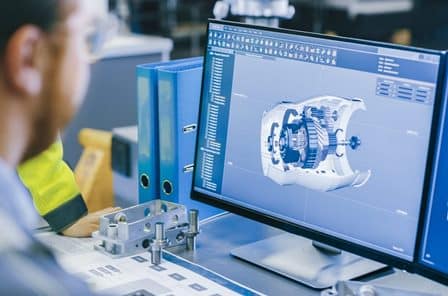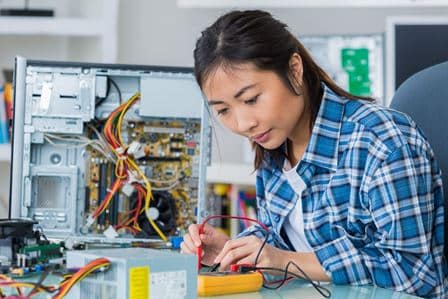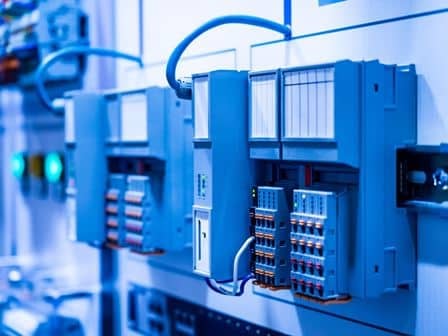At EIT the individual is important when it comes to being accepted to complete our Bachelor of Science degrees in one of four engineering sub-disciplines.
Traditionally, school graduates compound the largest cohort of Bachelor’s degree students, and it is also true for EIT.
However, everyone’s different, so applicants with work experience, previous qualifications like certificates, diplomas and Advanced Diplomas can use their background for entry into a Bachelor’s qualification.
In the case of prior education, it can potentially shorten your degree acquisition, and also assist with entry into the course of your choice.
Browse Bachelor Degrees at EIT
Online - Bachelor of Science (Civil and Structural Engineering)
This practical qualification will ensure you graduate job-ready as a…Read moreOnline - Bachelor of Science (Mechanical Engineering)
This practical qualification will ensure you graduate job-ready as a…Read moreOnline - Bachelor of Science (Electrical Engineering)
This practical qualification will ensure you graduate job-ready as an…Read moreOnline - Bachelor of Science (Industrial Automation Engineering)
Upon completion of this program, you will gain skills and…Read moreOn-Campus - Bachelor of Science (Civil and Structural Engineering)
Upon completion of this program, you will gain skills and…Read moreOn-Campus - Bachelor of Science (Mechanical Engineering)
This practical qualification will ensure you graduate job-ready as a…Read moreOn-Campus - Bachelor of Science (Electrical Engineering)
Practical qualification will ensure you graduate job-ready as an electrical…Read more

Why choose a Bachelor of Science?
A major reason to choose this degree is that it is accredited by Engineers Australia. This means that it is recognized in Australia and most parts of the world as a full-fledged Bachelor’s degree under the Sydney Accord.
Four EIT Bachelor’s programs are accredited under the Sydney Accord:
- Bachelor of Science (Electrical Engineering)
- Bachelor of Science (Civil and Structural Engineering)
- Bachelor of Science (Industrial Automation Engineering)
- Bachelor of Science (Mechanical Engineering)
Under the Sydney Accord signatories that have full rights of participation in the Accord are:
- Australia – Engineers Australia (EA) (2001)
- Canada – Canadian Council of Technicians and Technologists (CCTT) (2001)
- Chinese Taipei – Institute of Engineering Education Taiwan (IEET) (2014)
- Hong Kong China – Hong Kong Institution of Engineers (HKIE) (2001)
- Ireland – Engineers Ireland (EI) (2001)
- Korea – Accreditation Board for Engineering Education of Korea (ABEEK) (2013)
- New Zealand – Engineering New Zealand (EngNZ) (2001)
- South Africa – Engineering Council South Africa (ECSA) (2001)
- United Kingdom – Engineering Council United Kingdom (ECUK) (2001)
- United States – Accreditation Board for Engineering and Technology (ABET) (2009)
What does “fully recognized under the Sydney Accord” mean to graduates?
Choosing a degree that has full recognition under one of the Engineering Accords has many benefits, including:
- International recognition allows graduates to move between countries without the need to reconfirm their qualifications. Whether you are considering moving permanently or just working on an exciting project for a few years, it’s good news you can practice in the same capacity as before when you change location between the countries-signatories.
- Sydney Accord in particular is dealing with Engineering Technologist qualifications which comprise a large chunk of jobs in the industry including process engineering, manufacturing, process automation, and more.
Pathways to a Bachelor’s degree of your choice
- Diploma (or higher) qualification
Students that have completed Diploma or higher level qualification (or equivalent level qualification from another country) with successful completion of all Maths subjects can also apply to complete a Bachelor’s degree at EIT.
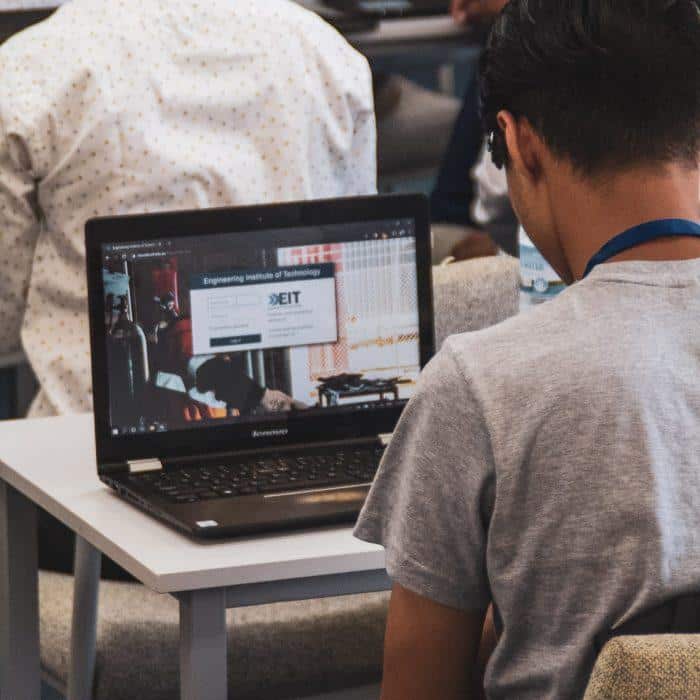
Recognition of Prior Learning
Relevant previous education may shorten the course duration if you previously studied a similar topic or unit.
Learning acquired through a formal learning process, such as completion of (or part of) a course at another recognized educational institution can be considered by EIT once you are enrolled in a Bachelor’s program.
Students are required to submit a Recognition of Prior Learning (RPL) application, and the onus will be on applicants to demonstrate that they have the relevant skills, knowledge and understanding, and to provide the required evidence. An RPL application is assessed by one of EIT’s Course Coordinators with assistance from a subject matter expert where required RPL applications are assessed on a case-by-case basis.
The total amount of credit granted will vary from individual to individual, based on which qualification(s) or combinations of qualification components have been successfully completed. When you receive a Letter of Offer you will be invited to submit an RPL application, the fee for this to be assessed is AU$300.
If you choose to study an Advanced Diploma course with EIT and later want to progress to a Bachelors, there are many points of cross recognition.
Similarly, Undergraduate Certificates at EIT cover four units from one of EIT’s Bachelor courses, and those units can be used as credit in a Bachelor environment since the unit has been successfully completed.

2. High school (Year 12) (or equivalent) completion
The most traditional pathway taken by many students into our bachelor degree programs. Applicants need to have completed a minimum level of education equivalent to successful completion of Australian Year 12.
For examples of the accepted upper secondary qualifications in other countries, and a guide to the minimum grades that EIT will consider click here.
Another important foundation of successful engineering education is good math. This is why at EIT we require a certain level of achievement in Math which will differ depending on where you studied.
If Year 12 was completed more than 2 years applicants will also need to show relevant work experience in the field of study applied for. Undergraduate Certificates with EIT are micro-credentials that are constructed using 4 units from an EIT Bachelor’s degree. These 6-month courses can be used as a pathway to a Bachelor’s qualification and is also a good taste-tester for students to see if a Bachelor’s degree is the right fit for them.
Undergraduate Certificate in Industrial Automation Engineering
Upon completion of this undergraduate certificate, you will have fundamental…Read moreUndergraduate Certificate in Electrical Engineering
Upon completion of this undergraduate certificate, you will have fundamental…Read moreUndergraduate Certificate in Mechanical Engineering
Upon completion of this undergraduate certificate, you will acquire fundamental…Read moreUndergraduate Certificate in Civil Engineering
Civil and structural engineering is one of the oldest forms…Read moreUndergraduate Certificate in Electrical and Electronics Engineering
Upon completion of this undergraduate certificate, you will be able…Read moreUndergraduate Certificate in Industrial Instrumentation and PLC Programming
Upon completion of this undergraduate certificate, you will be able…Read moreUndergraduate Certificate in Engineering Foundations
Upon completion of this undergraduate certificate, you will be able…Read more

Beyond a Bachelor’s degree
Graduates from the Bachelor’s program can choose from a range of Graduate Certificates to gain more knowledge in specialized areas within engineering once they graduate.
These micro-credentials are valuable in changing workplaces since each of the 17 Graduate Certificates offered at EIT is aligned with industry needs – meaning it is targeted toward working engineers to upskill and gain even broader knowledge.
Similar to how Undergraduate Certificates and Advanced Diplomas with EIT can help you enter our Bachelor courses; Graduate Certificates are also a great pathway into Master of Engineering courses with EIT.
A Bachelor’s degree or equivalent is a necessity for post-graduate academic qualifications, and a Master-degree or equivalent allow students to have highly specialized training and education, that further enhances the knowledge and skills gained during the completion of a Bachelor’s degree.
Go even further with an EIT Master of Engineering degree
Two of EIT Master’s programs are accredited under the Washington Accord.
The Online Master of Engineering (Industrial Automation)/On-campus Master of Engineering (Industrial Automation) and Online Master of Engineering (Electrical Systems)/On-campus Master of Engineering (Electrical Systems) (recognized from the Perth campus only) qualifications are fully recognized by Engineers Australia (through the Washington Accord).
These qualifications are recognized (through the Washington Accord) by leading professional associations and societies. Signatories that have full rights of participation in the Accord are:
- Australia –Engineers Australia (EA) (1989)
- Canada – Engineers Canada (EC) (1989)
- China – China Association for Science and Technology (CAST) (2016)
- Chinese Taipei – Institute of Engineering Education Taiwan (IEET) (2007)
- Costa Rica – Colegio Federado de Ingenieros y de Arquitectos de Costa Rica (CFIA) (2020)
- Hong Kong China – Hong Kong Institution of Engineers (HKIE) (1995)
- India – National Board of Accreditation (NBA) (2014)
- Ireland – Engineers Ireland (EI) (1989)
- Japan –Japan Accreditation Board for Engineering Education (JABEE) (2005)
- Korea – Accreditation Board for Engineering Education of Korea (ABEEK) (2007)
- Malaysia – Board of Engineers Malaysia (BEM) (2009)
- New Zealand – Engineering New Zealand (EngNZ) (1989)
- Pakistan – Pakistan Engineering Council (PEC) (2017)
- Peru – Instituto de Calidad y Acreditacion de Programas de Computacion, Ingenieria y Tecnologia (ICACIT) (2018)
- Russia – Association for Engineering Education Russia (AEER) (2012)
- Singapore – Institution of Engineers Singapore (IES) (2006)
- South Africa – Engineering Council South Africa (ECSA) (1999)
- Sri Lanka – Institution of Engineers Sri Lanka (IESL) (2014)
- Turkey – Association for Evaluation and Accreditation of Engineering Programs (MÜDEK) (2011)
- United States – Accreditation Board for Engineering and Technology (ABET) (1989)
- United Kingdom – Engineering Council United Kingdom (ECUK) (1989)
The pathway to a Bachelor’s degree is then one of the keys to success for many engineers, because it not only gives you international relevance, you can also qualify for post-graduate studies and take part in lifelong learning.
Graduate Certificate in Industrial Automation Engineering
Earn a Graduate Certificate in Industrial Automation and gain advanced…Read moreGraduate Certificate in Mechanical Engineering
Designed to prepare you for further career development in the…Read moreGraduate Certificate in Civil Engineering: Structural
Upon completion of this program, you will gain skills and…Read more52859WA Graduate Certificate in Renewable Energy Technologies
You will gain skills and knowledge in the latest advanced…Read moreGraduate Certificate in Safety, Risk and Reliability Engineering
Modern engineers face an intriguing set of challenges when tackling…Read moreGraduate Certificate in Power System Analysis and Design
Graduate Certificate in Power System Analysis and Design will provide…Read moreGraduate Certificate in Civil Engineering: (Structural Analysis and Design)
Broaden and deepen your knowledge in the area of structural…Read moreGraduate Certificate in Chemical and Process Engineering
This Graduate Certificate in Chemical and Process Engineering will enable…Read more



